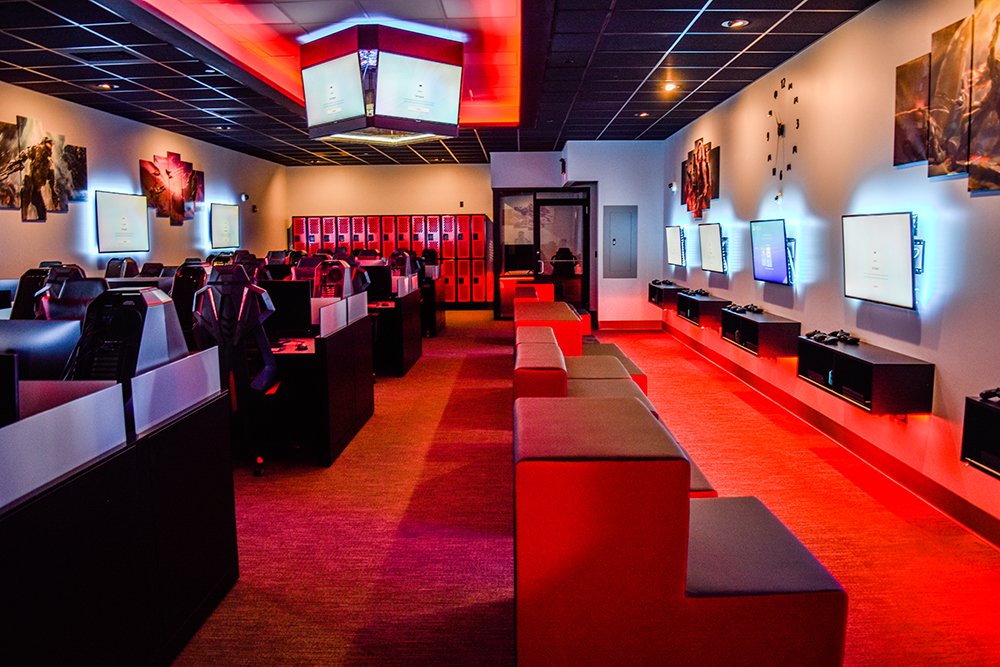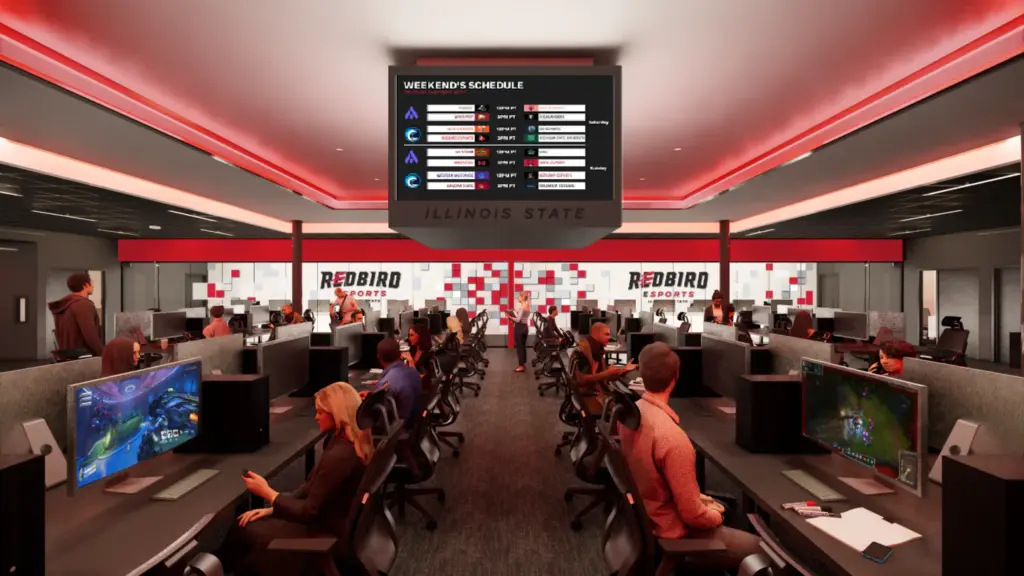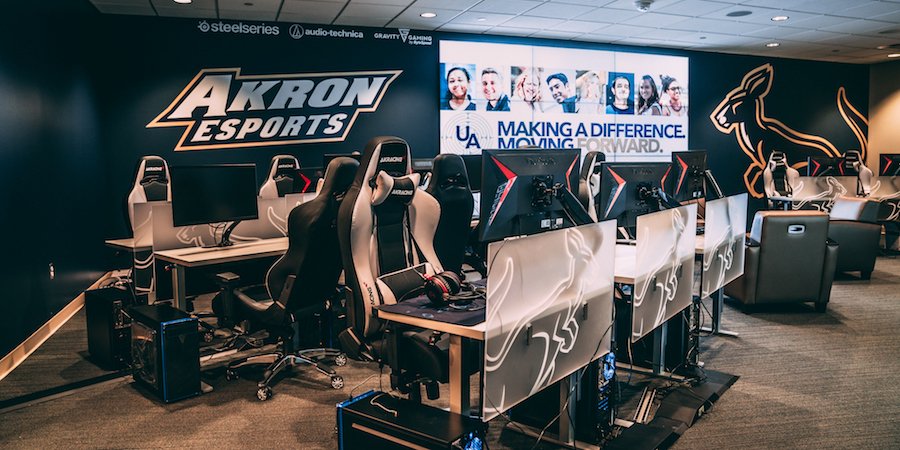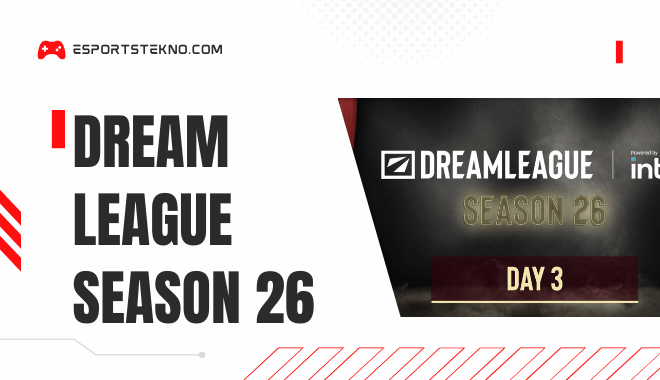In just a few short years, collegiate esports has transformed from a niche extracurricular activity into a thriving ecosystem complete with dedicated facilities, varsity teams, and millions in esports scholarships. As someone who’s closely tracked this remarkable evolution, I’ve witnessed firsthand how universities are increasingly recognizing competitive gaming as a legitimate part of campus culture and academic life.
The landscape of collegiate esports has matured dramatically, with institutions now competing not just for the best student-athletes in traditional sports but also for the most talented competitive gamers. For prospective students passionate about games like League of Legends, Call of Duty, or Fortnite, choosing the right college has become a complex decision involving factors ranging from scholarship opportunities and facilities to academic programs and professional development pathways.
This expert guide examines the top institutions for esports across North America, evaluating them based on multiple criteria including competitive success, infrastructure, academic offerings, industry connections, and overall commitment to esports development. Whether you’re a competitive player looking to continue your gaming career while pursuing higher education, or someone interested in the business and production side of esports, this analysis will help you navigate the rapidly evolving landscape of collegiate competitive gaming.
The Evolution of Collegiate Esports

Before diving into specific institutions, it’s important to understand how collegiate esports has developed and what drives its current growth trajectory.
From Student Clubs to Varsity Programs
The journey of esports in higher education mirrors the broader evolution of competitive gaming – from grassroots beginnings to institutional recognition. The earliest collegiate gaming communities emerged organically as student-run clubs in the early 2000s, primarily centered around games like StarCraft, Counter-Strike, and early fighting games.
A significant milestone came in 2014 when Robert Morris University Illinois (now Roosevelt University) became the first school to recognize esports as a varsity sport, offering substantial scholarships for League of Legends players. This watershed moment legitimized competitive gaming as a university-supported activity and sparked a rapid expansion across campuses nationwide.
“That first scholarship announcement changed everything,” explains Michael Brooks, former executive director of the National Association of Collegiate Esports (NACE). “It forced other institutions to recognize that esports wasn’t just a passing trend but something students were genuinely passionate about pursuing alongside their education.”
The growth since then has been exponential. By 2016, about seven schools had varsity esports programs. Today, over 175 colleges and universities are members of NACE, with hundreds more operating competitive programs outside this organization. This expansion represents one of the fastest-growing segments in both higher education and esports.
The Current Landscape
The collegiate esports ecosystem now encompasses multiple organizational bodies and competitive structures:
- NACE (National Association of Collegiate Esports): The largest membership organization for varsity esports programs
- Collegiate Starleague (CSL): One of the oldest collegiate esports organizations, running competitions across multiple games
- TESPA: Originally focused on Blizzard titles, now organizing broader collegiate competitions
- PlayVS: Expanding from high school to collegiate competition
- Publisher-run collegiate programs: Including Riot Games’ College League of Legends and the Overwatch Collegiate Championship
These organizations provide structured competitive environments across numerous games, with the most popular collegiate titles being League of Legends, Overwatch, Rocket League, Valorant, Hearthstone, and various fighting games. The increasing popularity of Mobile Legends Bang Bang and other mobile titles also reflects the broader growth of mobile gaming in collegiate esports.
What Makes a Top Esports College?

When evaluating the best colleges for esports, multiple factors come into play. My assessment considers several key criteria:
1. Competitive Success and Program History
- Tournament performance across multiple game titles
- Championship history and consistency
- Program longevity and stability
- Quality of coaching and support staff
2. Facilities and Infrastructure
- Dedicated esports arenas and practice spaces
- Quality of gaming equipment and esports hardware recommendations implementation
- Production capabilities for streaming and content creation
- Training resources beyond gaming (fitness facilities, etc.)
3. Scholarship Opportunities
- Value and number of available scholarships
- Recruitment processes and talent development
- Requirements for maintaining scholarships
- Additional financial support for competition travel and expenses
4. Academic Integration
- Esports-related degree programs and courses
- Academic credit for team participation
- Faculty involvement and research opportunities
- Balance between competitive and educational priorities
5. Industry Connections and Career Development
- Partnerships with esports organizations and companies
- Internship opportunities and job placement rates
- Industry networking events and guest speakers
- Alumni success in esports careers
6. Institutional Commitment
- Administrative support and recognition
- Funding stability and program investment
- Future development plans
- Campus culture and community support
With these criteria in mind, let’s examine the institutions that currently lead collegiate esports.
Top-Tier Esports Colleges in North America

1. University of California, Irvine (UCI)
UC Irvine has established itself as the gold standard for collegiate esports, becoming the first public university to create an official esports program in 2016. The program’s comprehensive approach touches all aspects of competitive gaming and esports education.
Competitive Success: UCI’s teams consistently rank among the best in collegiate competitions, with particular strength in League of Legends, Overwatch, and Super Smash Bros. Their League team has won the College League of Legends Championship and regularly produces players who receive interest from professional organizations.
Facilities: The UCI Esports Arena stands as one of the most impressive collegiate gaming facilities, featuring 72 high-performance gaming stations, competition areas, and broadcast capabilities. The 3,500 square-foot facility was designed with input from professional teams to create an optimal training environment.
Academic Integration: What truly sets UCI apart is its academic commitment to esports. The university offers a dedicated “Science of Esports” course and has integrated esports into multiple disciplines including computer science, business, and sports science. Their Computer Game Science major provides technical education relevant to esports and game development.
Industry Connections: Located in Southern California, UCI benefits from proximity to major game developers and esports organizations. The program maintains partnerships with companies like Riot Games, Blizzard Entertainment, and iBUYPOWER, facilitating internships and career opportunities for students.
Notable Initiative: UCI’s Esports Research Lab conducts pioneering studies on player performance, cognitive benefits of gaming, and the physiological impacts of competitive play, contributing valuable academic research to the industry.
2. Harrisburg University of Science and Technology
Despite being a relatively small institution, Harrisburg University has made an outsized impact on collegiate esports through substantial investment and competitive success.
Competitive Dominance: HU’s “Storm” esports team has achieved remarkable success, including back-to-back Overwatch collegiate championships and strong performances across multiple titles. Their approach to recruitment and development has created one of the most formidable collegiate programs.
Scholarship Commitment: Harrisburg offers full-tuition scholarships to all varsity team members, representing one of the most generous financial commitments in collegiate esports. This has allowed them to recruit top talent nationally and internationally.
Facilities: The university’s dedicated training facility in downtown Harrisburg provides state-of-the-art equipment and practice spaces. Additionally, the program regularly utilizes the Whitaker Center, a 700-seat theater, for major competitions and events, creating a true spectator experience.
Community Integration: What distinguishes Harrisburg’s approach is how they’ve integrated esports into the broader community. Their annual HUE Festival combines esports tournaments with music and entertainment, attracting thousands of attendees and creating unique networking opportunities for students.
Academic Development: The university has developed specialized courses in esports management, production, and coaching, allowing students to pursue careers beyond competitive play. Their focus on STEM education also provides relevant technical background for various esports industry roles.
3. Miami University (Ohio)
As the first Division I school to launch a varsity esports program, Miami University has pioneered the integration of competitive gaming into traditional collegiate athletics structures.
Program Structure: Miami’s approach stands out for treating esports similarly to traditional varsity sports, with structured tryouts, practice schedules, and performance expectations. The program operates within the university’s recreational sports department, lending institutional legitimacy.
Competitive Excellence: The RedHawks esports teams have achieved significant success, particularly in Overwatch and Hearthstone, where they’ve won national collegiate championships. Their League of Legends team has also consistently performed at a high level in the College Championship.
Academic Innovation: Miami has developed one of the most comprehensive esports academic tracks through their Armstrong Institute for Interactive Media Studies. Students can pursue an Esports Management minor that combines business, technology, and game design elements.
Industry Preparation: The program emphasizes professional skill development beyond gaming, requiring team members to participate in broadcasting, social media management, and event organization. This creates well-rounded graduates prepared for various industry roles.
Alumni Success: Miami graduates have secured positions with top esports teams and gaming companies, demonstrating the program’s effectiveness in career preparation. Their alumni network creates ongoing opportunities for current students.
4. Full Sail University
While taking a different approach than traditional four-year institutions, Full Sail University has established itself as a premier destination for esports education through its industry-focused curriculum and exceptional facilities.
The Fortress: Full Sail’s 11,200-square-foot esports venue, aptly named “The Fortress,” is among the most impressive collegiate facilities in North America. This $6 million complex features competition spaces, production capabilities, and analysis rooms that rival professional esports arenas.
Curriculum Focus: Rather than emphasizing varsity competition, Full Sail concentrates on preparing students for careers in esports production, management, and game development. Their specialized degree programs include Game Design, Show Production, and Sports Marketing & Media, all with esports-focused tracks.
Industry Immersion: The university’s accelerated programs and industry-experienced faculty provide students with relevant skills and portfolios. Their project-based education model mimics real-world esports production environments.
Event Hosting: Full Sail regularly hosts professional and collegiate esports events, giving students hands-on experience in tournament operations, broadcasting, and event management. These opportunities provide practical experience that translates directly to industry positions.
Technology Integration: The university consistently updates its technical resources to reflect industry standards, ensuring students train on the same equipment and software used by professional esports productions.
5. Ohio State University
As one of the largest and most prestigious public universities to embrace esports, Ohio State has brought considerable resources and research capabilities to collegiate gaming.
Comprehensive Approach: OSU’s esports program spans competitive teams, academic research, and medical studies on gaming performance. This multidisciplinary approach leverages the university’s strengths across numerous departments.
The Esports Arena: Ohio State’s dedicated gaming facility features over 80 gaming stations, console areas, and broadcast capabilities. The university has invested heavily in creating spaces that serve both competitive and casual gaming communities.
Academic Research: What truly distinguishes OSU is its research initiatives through the Sports Medicine Department and School of Communication. Their studies on player performance, mental health in esports, and cognitive impacts of gaming contribute valuable scientific knowledge to the field.
Curriculum Development: The university offers an interdisciplinary esports curriculum spanning five colleges, allowing students to approach gaming from business, technology, arts, or scientific perspectives. This breadth provides multiple academic pathways connected to esports.
Industry Partnerships: Ohio State has secured partnerships with Alienware, HyperX, and other gaming companies, providing both equipment support and industry connections for students. These relationships facilitate guest lectures, internships, and employment opportunities.
6. Becker College
While smaller than many institutions on this list, Becker College has pioneered esports academic programs and created unique opportunities for students interested in the business and management aspects of competitive gaming.
Academic Leadership: Becker became the first college to offer a Bachelor’s degree in Esports Management, creating a curriculum that combines business, marketing, event management, and game studies. This program has become a model for other institutions developing similar degrees.
Varsity Program Integration: The college effectively integrates its academic programs with its varsity esports teams, creating practical learning opportunities for management students through direct involvement with competitive operations.
Facilities Development: Becker’s Esports Center provides both competitive and casual gaming spaces, with equipment selected to meet collegiate competitive standards. The facility also serves as a laboratory for management students to practice event organization and team operations.
Industry Advisory Board: The college maintains an advisory board of esports professionals who provide curriculum guidance and industry connections. This ensures their academic programs remain aligned with current industry needs and practices.
Note: Following Becker College’s closure in 2021, many of their esports programs and initiatives have transitioned to other institutions, but their pioneering work in esports education remains influential.
Rising Stars in Collegiate Esports
Beyond the established leaders, several institutions are making significant investments and rapidly developing their esports programs:
7. University of California, Berkeley
UC Berkeley’s student-led program has achieved remarkable competitive success despite operating with less institutional support than some other programs. Their League of Legends team has won multiple collegiate championships, and they’ve developed strong teams across numerous titles.
The program’s grassroots nature and connection to the university’s engineering and computer science strengths have created a unique competitive culture. Berkeley is increasingly integrating esports into academic offerings while maintaining its student-driven approach.
8. New York University (NYU)
NYU’s urban campus and connection to media industries create unique opportunities for esports students. The university has developed specialized courses through the Tisch School of the Arts and the Game Center, focusing on game design, esports production, and competitive gaming culture.
Their approach emphasizes the creative and cultural aspects of esports, with particular strengths in fighting games and game development. NYU’s location provides unparalleled access to esports events, organizations, and media companies.
9. University of Toronto
As one of Canada’s premier academic institutions, the University of Toronto has developed a robust esports program that combines competitive teams with research initiatives. Their multidisciplinary approach leverages strengths in computer science, psychology, and business.
The university hosts major collegiate tournaments and has established partnerships with companies like AMD and Bell, creating both competitive and academic opportunities for students interested in esports.
10. Maryville University
Maryville has built one of the most successful competitive programs, winning multiple collegiate championships in League of Legends. Their scholarship program has attracted top talent, and the university has developed dedicated esports management and marketing courses.
Their approach emphasizes both competitive excellence and career preparation, with many graduates moving into professional esports positions. The program’s success demonstrates how medium-sized institutions can achieve national recognition through strategic esports investment.
Specialized Programs Worth Considering
Beyond overall excellence, several institutions offer specialized programs that might appeal to students with specific esports interests:
For Aspiring Broadcasters and Content Creators
The University of Akron has developed exceptional broadcasting facilities and curriculum through their Zips Esports program. Students gain hands-on experience in production, commentary, and content creation, with many graduates securing positions with esports broadcast teams and production companies.
Robert Morris University offers specialized tracks in esports communication and media production, with students regularly producing professional-quality broadcasts of collegiate competitions. Their media arts program provides relevant technical training for aspiring esports content creators.
For Business and Management Focus
Shenandoah University offers a comprehensive Esports Management degree that prepares students for the business side of competitive gaming. Their curriculum covers event management, team operations, sponsorship development, and marketing, with practical experience through their varsity program.
DePaul University’s Esports Gaming Administration concentration within their MBS program provides graduate-level education in esports business operations. Located in Chicago with connections to major esports organizations, the program offers valuable networking opportunities alongside rigorous business education.
For Game Development Pathway
DigiPen Institute of Technology provides specialized education in game design and development with increasing connections to esports. Their technical focus prepares students for careers creating the games that become esports, with courses covering competitive game balancing and spectator experience design.
Rochester Institute of Technology combines strong technical programs with a growing esports initiative. Their Game Design and Development program consistently ranks among the nation’s best, providing relevant skills for the technical side of the esports industry.
International Leaders in Esports Education
While North American institutions have led much of collegiate esports development, several international universities have established impressive programs:
Staffordshire University (UK) launched Europe’s first esports degree program and has developed extensive industry partnerships. Their curriculum balances business knowledge with technical skills, preparing graduates for various esports industry roles.
Kajaani University of Applied Sciences (Finland) offers specialized esports business education with strong connections to the Nordic gaming scene. Their program emphasizes practical project work and entrepreneurship in the esports sector.
Chung-Ang University (South Korea) has integrated esports into their Department of Sport Science, recognizing competitive gaming alongside traditional athletics. Located in the global epicenter of esports, the university provides unparalleled access to the Korean competitive gaming ecosystem.
Key Considerations for Prospective Students
When evaluating esports programs, prospective students should consider several factors beyond just competitive opportunities:
Balance Between Competition and Academics
The relationship between esports participation and academic expectations varies significantly between institutions. Some programs emphasize competitive success with less rigorous academic integration, while others maintain strict GPA requirements and limit practice hours.
“Finding the right balance is crucial,” advises Dr. Rachel Kowert, research psychologist specializing in gaming. “Students should seek programs where esports enhances rather than detracts from their educational experience. The best programs treat gaming as a complement to academics, not a replacement.”
Post-Graduation Outcomes
Given the relatively short competitive careers highlighted in our article on esports retirement age, prospective students should carefully evaluate how programs prepare them for long-term careers. Look for institutions with demonstrated success placing graduates in industry positions beyond professional play.
Questions to consider include:
- Do alumni work in the esports industry after graduation?
- What internship opportunities are available?
- Does the program teach transferable skills applicable outside esports?
- Are there networking events with industry professionals?
Total Cost Consideration
While many programs offer esports scholarships, the total cost of attendance varies dramatically between institutions. A partial scholarship at a high-tuition private university might still leave students with significant financial obligations compared to a public institution with lower base tuition.
“Look beyond the headline scholarship numbers,” recommends financial aid consultant Michael Johnson. “Consider the total cost after scholarships, living expenses in different locations, and the long-term return on investment from different programs.”
Program Sustainability and Institutional Commitment
The rapid growth of collegiate esports has led some institutions to launch programs without sufficient long-term planning or financial commitment. Students should evaluate the stability and institutional support for programs they’re considering.
Indicators of strong institutional commitment include:
- Dedicated full-time staff (not just part-time coaches)
- Purpose-built facilities rather than repurposed spaces
- Integration with academic departments
- Multi-year funding commitments
- Administrative recognition at the highest levels
The Future of Collegiate Esports
Looking ahead, several emerging trends will likely shape the evolution of esports in higher education:
Increasing Academic Legitimacy
As esports programs mature, we’re seeing greater integration with traditional academic structures. More institutions are developing dedicated degree programs, research initiatives, and faculty positions focused on competitive gaming.
“The next phase of collegiate esports will see greater academic rigor applied to the field,” predicts Dr. Seth Jenny, esports researcher at Slippery Rock University. “We’re moving from simply having teams to developing comprehensive educational frameworks around competitive gaming.”
Title IX and Diversity Considerations
As esports programs receive institutional funding and support, they increasingly face the same regulatory considerations as traditional athletics. Title IX compliance, in particular, will likely drive greater investment in women’s competitive opportunities and diversity initiatives.
Several institutions, including UC Irvine and Boise State, have already developed specific programs to increase gender diversity in their esports programs. This trend will likely accelerate as programs become more formalized within athletic departments.
Publisher Relationships and Game Longevity
One unique challenge facing collegiate esports is the dependency on commercial games controlled by publishers. Unlike traditional sports with stable rules, esports titles evolve rapidly and may decline in popularity, creating challenges for program stability.
Forward-thinking institutions are developing approaches that focus on transferable skills across games rather than specializing too narrowly in specific titles. This adaptability will be crucial for long-term program sustainability as the competitive landscape evolves.
Professional Pathway Development
The relationship between collegiate and professional esports continues to develop, with some publishers creating more structured pathways from college competition to professional leagues. Riot Games’ College League of Legends program, in particular, has strengthened connections to the professional scene.
As what is the biggest esport continues to evolve, collegiate programs that establish stronger connections to professional opportunities will likely attract top competitive talent.
Conclusion: Choosing the Right Program for Your Esports Journey
The rapid evolution of collegiate esports has created unprecedented opportunities for students passionate about competitive gaming. From full-ride scholarships at dedicated esports powerhouses to academic programs preparing students for industry careers, the options are more diverse and substantial than ever before.
When evaluating potential institutions, prospective students should consider their specific goals within esports. Those primarily focused on competitive play might prioritize programs with championship history and generous scholarships. Students interested in industry careers might favor institutions with strong academic integration and industry connections. Those seeking a balanced experience should look for programs that successfully combine competitive opportunities with relevant education.
What’s most encouraging about the current landscape is the increasing legitimacy and sustainability of collegiate esports. What began as student-led clubs has evolved into professionally managed programs with dedicated facilities, full-time staff, and academic recognition. This maturation suggests that esports is becoming a permanent and valued component of the higher education ecosystem rather than a passing trend.
As collegiate esports continues to develop, we’ll likely see further specialization among programs, more structured competitive formats, and deeper integration with academic disciplines. For students passionate about gaming, this evolution creates exciting possibilities to pursue their competitive and intellectual interests simultaneously – turning what was once just a hobby into a pathway to education, community, and career opportunities.
The best collegiate esports programs recognize that their ultimate success isn’t measured just in championships won, but in graduates prepared to contribute to the growing esports industry and beyond. By choosing institutions that balance competitive opportunities with educational excellence, students can leverage their gaming passion into meaningful academic and professional development – truly getting the best of both worlds.
Daffa Nur Rafie Alam is a passionate gaming enthusiast and technology aficionado dedicated to exploring the dynamic intersection of esports, gaming, and innovation. With a keen eye for emerging trends and a deep understanding of the gaming landscape, he provides insightful analysis and engaging content for both casual gamers and industry professionals. As a contributor to Esportstekno.com, Daffa ensures that readers receive reliable information that enhances their understanding of the ever-evolving world of esports.
Daffa Nur Rafie Alam is a passionate gaming enthusiast and technology aficionado dedicated to exploring the dynamic intersection of esports, gaming, and innovation. With a keen eye for emerging trends and a deep understanding of the gaming landscape, he provides insightful analysis and engaging content for both casual gamers and industry professionals. As a contributor to Esportstekno.com, Daffa ensures that readers receive reliable information that enhances their understanding of the ever-evolving world of esports. Join him on this exciting journey as he shares valuable insights and fosters a community of like-minded individuals passionate about the innovations shaping the gaming industry.
 eSportsTekno Your Gateway to the Future of Gaming and Innovation
eSportsTekno Your Gateway to the Future of Gaming and Innovation
